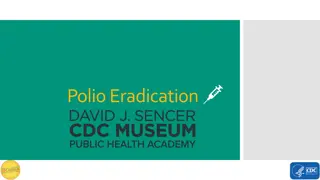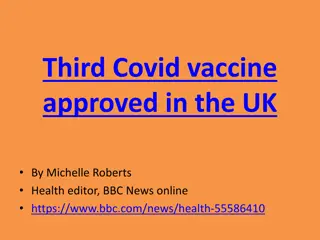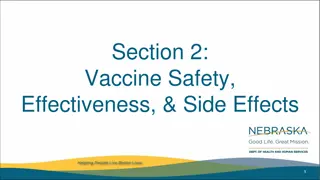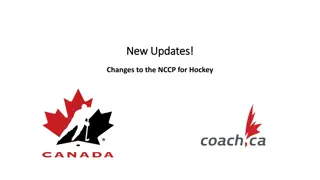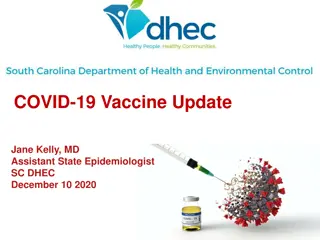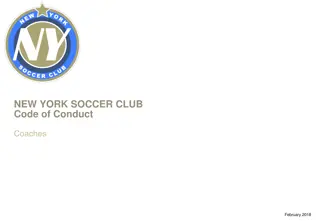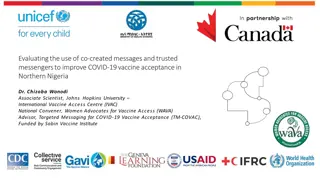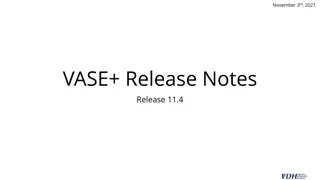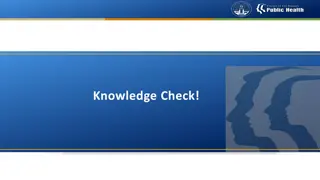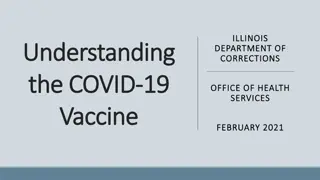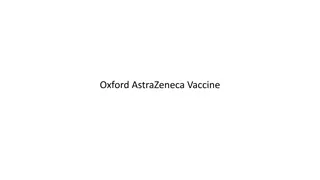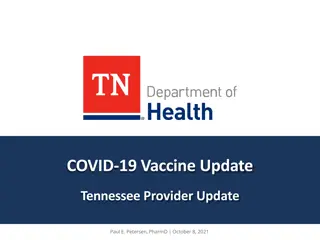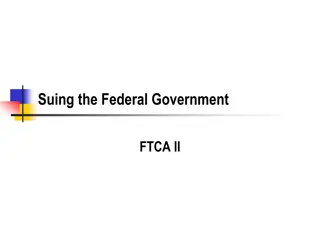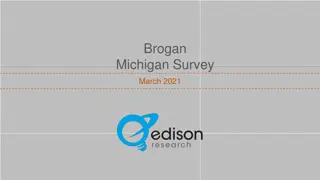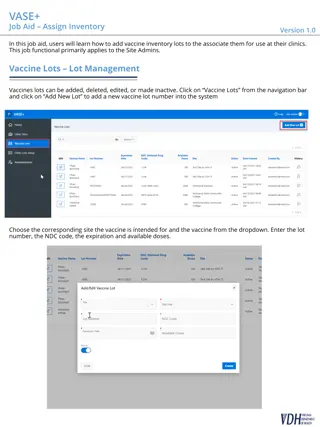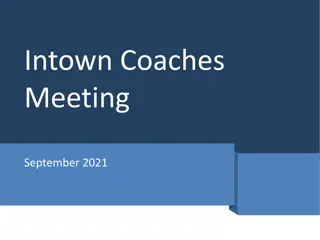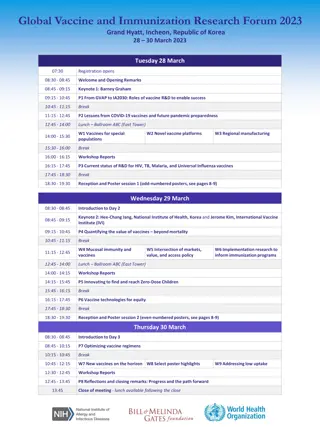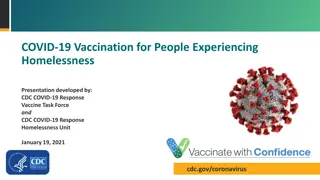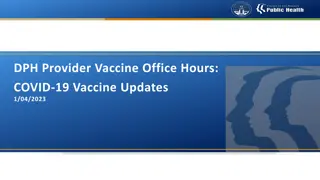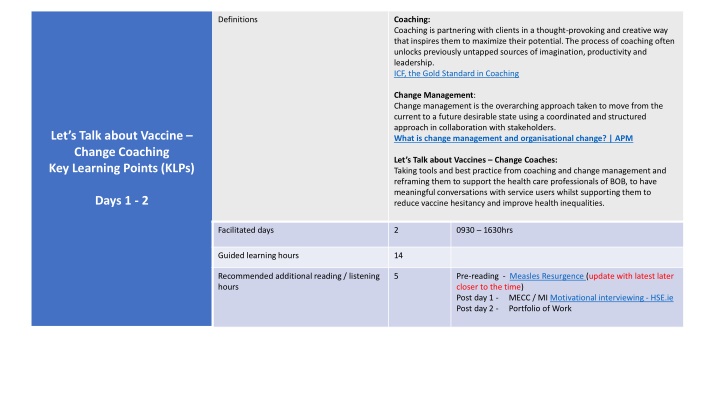
Unlocking Potential: Coaching and Change Management for Healthcare Professionals
Explore the intersection of coaching and change management in healthcare, focusing on reducing vaccine hesitancy and improving health outcomes. Learn key strategies, tools, and skills to engage with service users effectively. Develop a coaching mindset to maximize impact and create meaningful change.
Download Presentation

Please find below an Image/Link to download the presentation.
The content on the website is provided AS IS for your information and personal use only. It may not be sold, licensed, or shared on other websites without obtaining consent from the author. If you encounter any issues during the download, it is possible that the publisher has removed the file from their server.
You are allowed to download the files provided on this website for personal or commercial use, subject to the condition that they are used lawfully. All files are the property of their respective owners.
The content on the website is provided AS IS for your information and personal use only. It may not be sold, licensed, or shared on other websites without obtaining consent from the author.
E N D
Presentation Transcript
Definitions Coaching: Coaching is partnering with clients in a thought-provoking and creative way that inspires them to maximize their potential. The process of coaching often unlocks previously untapped sources of imagination, productivity and leadership. ICF, the Gold Standard in Coaching Change Management: Change management is the overarching approach taken to move from the current to a future desirable state using a coordinated and structured approach in collaboration with stakeholders. What is change management and organisational change? | APM Let s Talk about Vaccine Change Coaching Key Learning Points (KLPs) Let s Talk about Vaccines Change Coaches: Taking tools and best practice from coaching and change management and reframing them to support the health care professionals of BOB, to have meaningful conversations with service users whilst supporting them to reduce vaccine hesitancy and improve health inequalities. Days 1 - 2 Facilitated days 2 0930 1630hrs Guided learning hours 14 Recommended additional reading / listening hours 5 Pre-reading - Measles Resurgence (update with latest later closer to the time) Post day 1 - MECC / MI Motivational interviewing - HSE.ie Post day 2 - Portfolio of Work
Learning Outcomes Key Learning Points Comments 1 Introduction to the Universal model of personalised care. 1.1 Know the Universal Model of personalised care 1.2 Know the impact that a range of social, economic and environmental factors can have on outcomes for individuals 2 2.1 Understand ones self and others learning styles, using Fleming s Visual, Auditory and Kinaesthetic (VAK) model. Understand how people learn and think. 2.2 Discuss Kolb s Experiential learning cycle to prevent the change coach, only using their preferred style. 3 3.1 Learn the definition of coaching and the difference between coaching, mentoring, counselling and advisory services. Understand a coaching mindset and the importance of creating a safe and positive relationship to support engagement and building of rapport. 3.2 Learn characteristics of a coaching mindset versus fixed mindset and practice applying a coaching mindset to maximise the effectiveness of vaccine hesitancy conversations. 4 4.1 Learn and practice the TGROW coaching model Know how to structure conversations using a coaching approach and have the opportunity to practice using a model within a safe and supportive environment. 4.2 Understand different types of questions and be able to use effective questions to raise awareness and provide supportive change
Learning Outcomes Key Learning Points Comments 5 Coaching skills continued including: 5.1 Learn effective questioning and listening techniques to identify barriers to change (said and unsaid) Understand the importance of key communication skills including active and empathetic listening whilst building trust and rapport, and understanding the need for sensitivity and confidentiality. 5.2 Learn key communication skills to be able to work with resistance in a non judgemental way (TA) 5.3 Be able to build safety in the conversation to support openness and honesty and willingness to engage. Trust and Rapport 5.4 Understand the importance of confidentiality and when confidentiality may need to be broken and why. 6 Support to service users to set goals that encourage intrinsic motivation and are responsive and sensitive to the needs and beliefs of the service user. 6.1 Learn SMART goal setting model 6.2 Understand that each person is an expert in their own life and the importance of mindset and motivations ( I want to vs I have to motivation) 7 Appropriate use of problem solving and goal follow-up across sessions to maintain and increase activation 7.1 Practice TGROW and SMART in a safe environment including feedback from fellow delegates and trainer
Learning Outcomes Key Learning Points Comments 8 Reflections and learning from self-directed study 8.1 Share key points and outcomes from self-directed study 9 Supporting behaviour change 9.1 Remind and revise MECC, COM-B, and 3A s, as an example of a behaviour change technique and then practice using it in a Let s Talk about Vaccine context scenario. 10 Motivational Interviewing 10.1 Remind and revise the ethos and principles of MI and discuss the benefits of using MI for HCP and service users 10.2 Know the Stages of Change Model by Prochalska and Di Cleente s and how to apply in practice 10.3 Understand maintenance and change talk in motivational interviewing 10.4 Practice the OARS Model and 4 stages of MI to be able to work with individuals who express resistance to change 10.5 Understand and be able to use the Decisional Imbalance Tool
Learning Outcomes Key Learning Points Comments 12 Change management tools 12.1 Be able to list different types of barriers to change (cognitive, emotional, behavioural, physical etc) 13 Be able to apply a range models, frames and techniques that support self management. 13.1 Practice coaching session with other delegates in a safe environment with feedback. 14 The importance of a community of practice peer support and the change sponsor 14.1 Know the purpose of the communities of practice. 14.2 Understand the change sponsors forms

